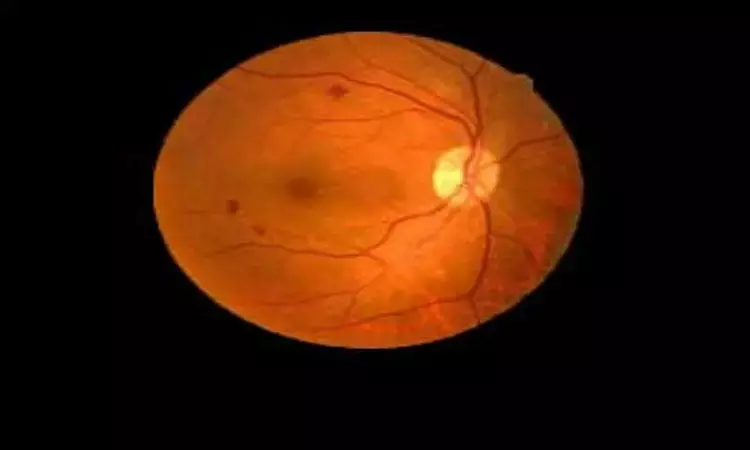- Home
- Medical news & Guidelines
- Anesthesiology
- Cardiology and CTVS
- Critical Care
- Dentistry
- Dermatology
- Diabetes and Endocrinology
- ENT
- Gastroenterology
- Medicine
- Nephrology
- Neurology
- Obstretics-Gynaecology
- Oncology
- Ophthalmology
- Orthopaedics
- Pediatrics-Neonatology
- Psychiatry
- Pulmonology
- Radiology
- Surgery
- Urology
- Laboratory Medicine
- Diet
- Nursing
- Paramedical
- Physiotherapy
- Health news
- Fact Check
- Bone Health Fact Check
- Brain Health Fact Check
- Cancer Related Fact Check
- Child Care Fact Check
- Dental and oral health fact check
- Diabetes and metabolic health fact check
- Diet and Nutrition Fact Check
- Eye and ENT Care Fact Check
- Fitness fact check
- Gut health fact check
- Heart health fact check
- Kidney health fact check
- Medical education fact check
- Men's health fact check
- Respiratory fact check
- Skin and hair care fact check
- Vaccine and Immunization fact check
- Women's health fact check
- AYUSH
- State News
- Andaman and Nicobar Islands
- Andhra Pradesh
- Arunachal Pradesh
- Assam
- Bihar
- Chandigarh
- Chattisgarh
- Dadra and Nagar Haveli
- Daman and Diu
- Delhi
- Goa
- Gujarat
- Haryana
- Himachal Pradesh
- Jammu & Kashmir
- Jharkhand
- Karnataka
- Kerala
- Ladakh
- Lakshadweep
- Madhya Pradesh
- Maharashtra
- Manipur
- Meghalaya
- Mizoram
- Nagaland
- Odisha
- Puducherry
- Punjab
- Rajasthan
- Sikkim
- Tamil Nadu
- Telangana
- Tripura
- Uttar Pradesh
- Uttrakhand
- West Bengal
- Medical Education
- Industry
Fluocinolone acetonide implant effective in treating diabetic macular edema: BMJ

USA: The use of the 0.2 ug/day fluocinolone acetonide (FAc) implant is beneficial for the management of diabetic macular edema, a recent study in the British Journal of Ophthalmology has found. According to the study, following 24 months of FAc implant, there were few intraocular pressure (IOP)-related procedures. Also, there was a stabilization of vision and reduction in inflammation.
Approximately 35% of the diabetes patients develop diabetic retinopathy and 7% progress to diabetic macular edema (DMO) which a severe vision-threatening stage of diabetic retinopathy. The FAc implant delivers continuous, low-dose, intravitreal corticosteroid for the treatment of diabetic macular edema.
Sam E Mansour, George Washington University, Washington, District of Columbia, USA, and colleagues conducted this his 24-month interim analysis of a prospective, observational study to investigate patients with DMO receiving the commercially available intravitreal 0.2 µg/day FAc implant. Data were collected from 95 previously steroid-challenged patients (115 study eyes) for up to 36 months pre-FAc and 24 months post-FAc implant.
The primary outcome was incidence of intraocular pressure (IOP)-lowering procedures.
Key findings of the study include:
- Mean IOP for the overall population remained stable post-FAc compared with pre-FAc implant.
- IOP-related procedures remained infrequent (two IOP-lowering surgeries pre-FAc; two trabeculoplasties and four IOP-lowering surgeries post-FAc).
- Mean visual acuity was stable post-FAc (mean improvement of 1–3 letters) and fewer DMO treatments were required per year following FAc implant.
- Mean CST was significantly reduced at 24 months post-FAc implant and the percentage of patients with CST ≤300 µm was significantly increased.
"Few IOP-related procedures were reported during the 24 months post-FAc implant. Positive efficacy outcomes were noted after treatment, with stabilization of vision and reduction in inflammation, demonstrated by CST. The FAc implant has a favorable benefit-risk profile in the management of DMO, especially when administered after a prior steroid challenge," concluded the authors.
"Two-year interim safety results of the 0.2 µg/day fluocinolone acetonide intravitreal implant for the treatment of diabetic macular oedema: the observational PALADIN study," is published in the British Journal of Ophthalmology.
Dr Kamal Kant Kohli-MBBS, DTCD- a chest specialist with more than 30 years of practice and a flair for writing clinical articles, Dr Kamal Kant Kohli joined Medical Dialogues as a Chief Editor of Medical News. Besides writing articles, as an editor, he proofreads and verifies all the medical content published on Medical Dialogues including those coming from journals, studies,medical conferences,guidelines etc. Email: drkohli@medicaldialogues.in. Contact no. 011-43720751


